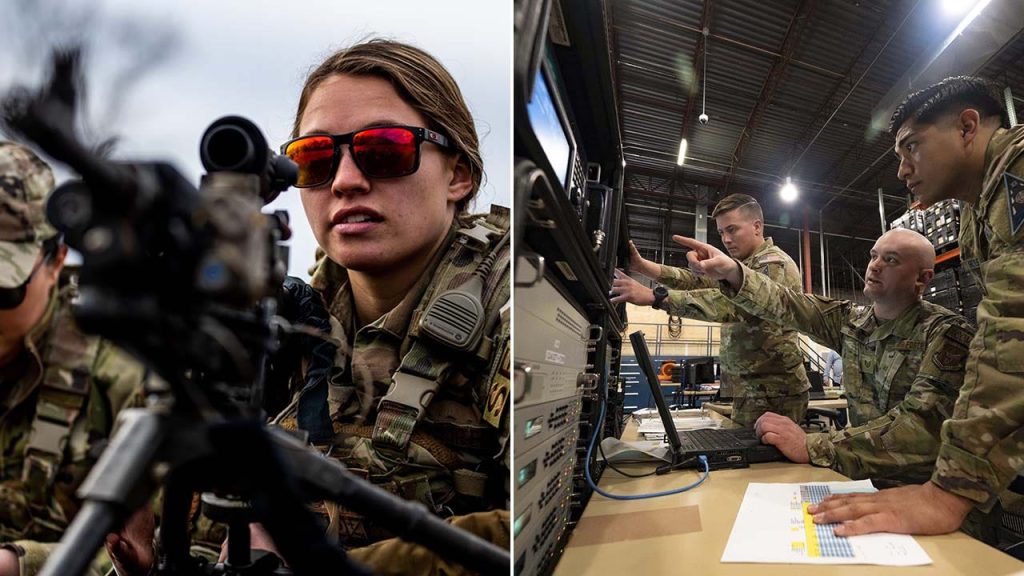A proposal to reassign Air National Guard troops to the Space Force without the consent of governors has sparked controversy as critics argue that it poses an existential threat to the part-time force. Legislative Proposal 480 aims to bolster the Space Force by transferring Guard members without the approval of governors, in violation of a longstanding tradition. Retired Maj. Gen. Francis M. McGinn, president of the National Guard Association, warned that the proposal would strip Guard units, personnel, and resources from the governors and place them directly in the active component Space Force, undermining operational efficiency.
Under LP480, Air National Guard troops involved in space missions could be transitioned to the Space Force as part-timers without the governor’s approval. The National Guard and Air National Guard, key reserve components for the active-duty Army and Air Force, support various missions including disaster relief and security operations. Given that the National Guard falls under the authority of governors until federalized, the proposal to transfer Guard units to the Space Force without state approval has raised concerns among lawmakers and officials.
All 55 governors have expressed opposition to the plan, arguing that it would infringe upon their authority and defy federal law requiring consultation and approval from governors on such decisions. Governor Greg Abbott of Texas labeled LP480 as a “power grab,” reflecting widespread discontent among state leaders. The National Governors Association emphasized that productive discussions cannot take place until the proposal is withdrawn, urging Air Force leaders to respect the role of governors in National Guard matters.
While Air Force Secretary Frank Kendall III clarified that the intent behind LP480 is not to set a precedent or disregard the governors’ role, the proposal aims to integrate Air National Guard space missions into the Space Force. This move could impact over 1,000 Air Guard troops across multiple states, potentially leading to a capability gap and impacting national security. National Guard Association Chair of the Space task force, Brig. Gen. Michael Bruno, highlighted concerns about recruitment challenges and retention issues if Guard members are transferred to the Space Force.
The Space Force, the youngest U.S. military branch, seeks to protect national interests and ensure freedom of operation in space. McGinn emphasized the importance of Air National Guard members who are currently contributing significantly to space and electronic warfare missions. Many Guard members have expressed a preference to remain in the Air National Guard due to community ties, state missions, and lack of relocation requirements. Concerns have been raised about the potential impact on operational readiness and the effectiveness of recruiting and retaining Guard members if they are transferred to administrative roles in the Space Force.
Critics of LP480 emphasize that the proposal undermines the core principles of the National Guard, established to respond to state and national needs while being under the authority of governors. The proposal’s potential long-term impact on operational efficiency, capability gap, and recruitment challenges could pose risks to national security. The debate surrounding the proposal highlights tensions between federal and state authorities, as well as the need for collaborative decision-making in military matters that affect both state and national interests.


